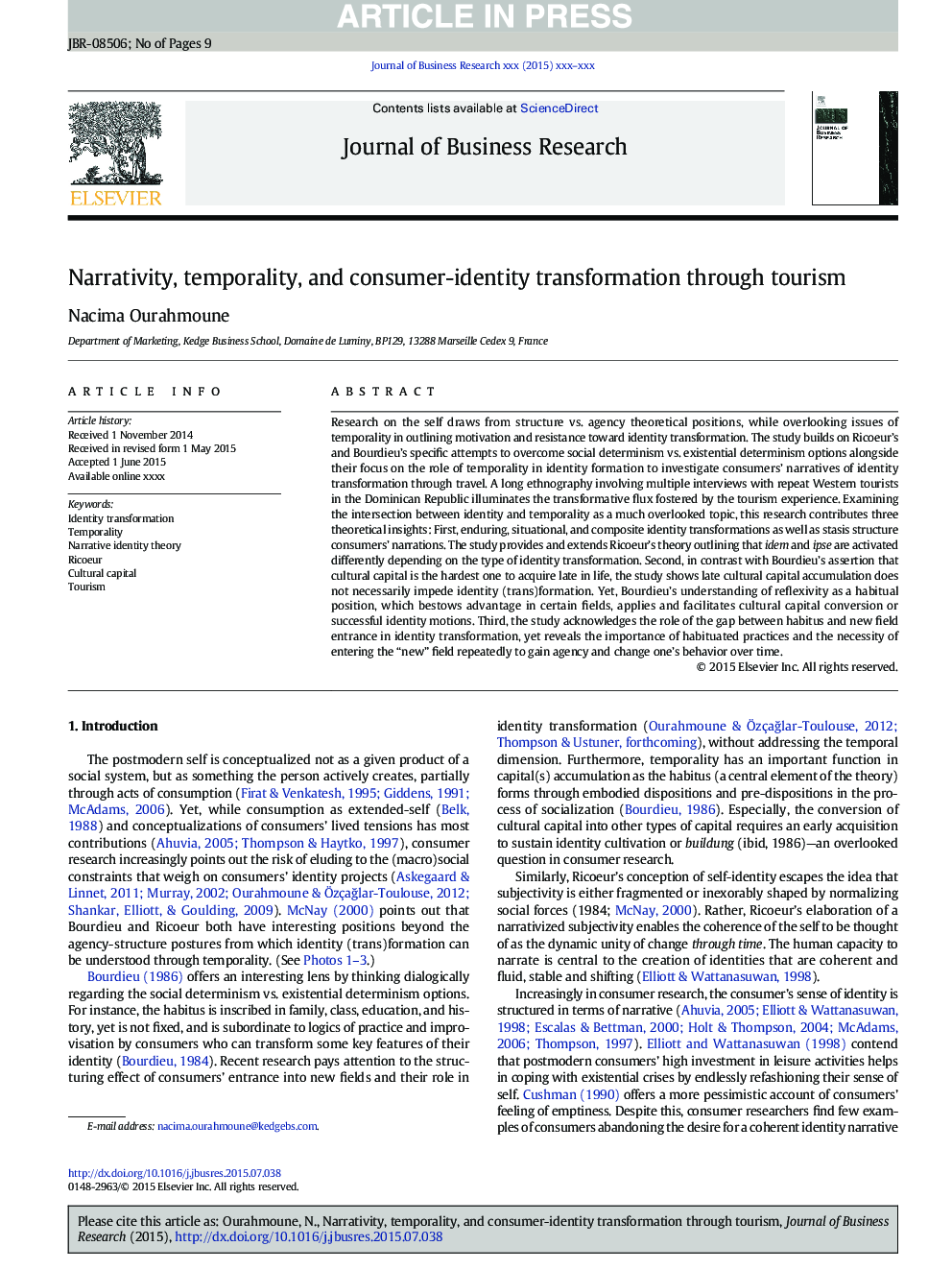| Article ID | Journal | Published Year | Pages | File Type |
|---|---|---|---|---|
| 10492960 | Journal of Business Research | 2016 | 9 Pages |
Abstract
Research on the self draws from structure vs. agency theoretical positions, while overlooking issues of temporality in outlining motivation and resistance toward identity transformation. The study builds on Ricoeur's and Bourdieu's specific attempts to overcome social determinism vs. existential determinism options alongside their focus on the role of temporality in identity formation to investigate consumers' narratives of identity transformation through travel. A long ethnography involving multiple interviews with repeat Western tourists in the Dominican Republic illuminates the transformative flux fostered by the tourism experience. Examining the intersection between identity and temporality as a much overlooked topic, this research contributes three theoretical insights: First, enduring, situational, and composite identity transformations as well as stasis structure consumers' narrations. The study provides and extends Ricoeur's theory outlining that idem and ipse are activated differently depending on the type of identity transformation. Second, in contrast with Bourdieu's assertion that cultural capital is the hardest one to acquire late in life, the study shows late cultural capital accumulation does not necessarily impede identity (trans)formation. Yet, Bourdieu's understanding of reflexivity as a habitual position, which bestows advantage in certain fields, applies and facilitates cultural capital conversion or successful identity motions. Third, the study acknowledges the role of the gap between habitus and new field entrance in identity transformation, yet reveals the importance of habituated practices and the necessity of entering the “new” field repeatedly to gain agency and change one's behavior over time.
Related Topics
Social Sciences and Humanities
Business, Management and Accounting
Business and International Management
Authors
Nacima Ourahmoune,
